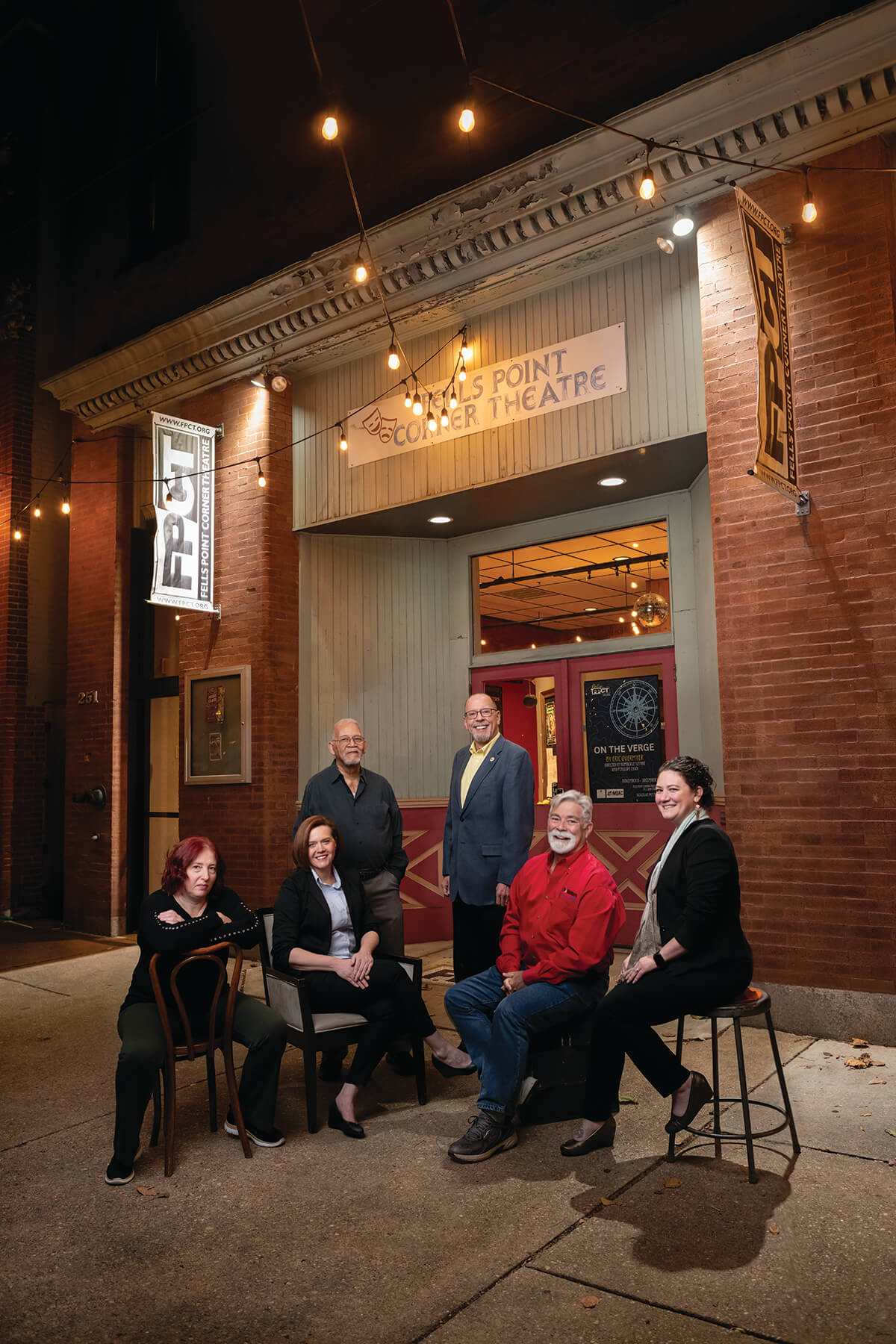Arts & Culture
Baltimore Small Stage Coalition Unites the Local Theater Community, One Audition at a Time
The nonprofit alliance fosters mutual support, advocacy, and collaboration among the city’s DIY theater scene.

The first thing you notice about the Fells Point Corner Theatre is that it’s not located on a corner at all. It occupies a former historic firehouse that’s easy to miss, located halfway down the block of a residential stretch of South Ann Street. Its bright red doors open to a cozy lobby adorned with show posters from its more than four decades of innovative programming.
In 1987, the Fells Point Corner Theatre was born from the merger of two smaller organizations: the Fells Point Theatre, a traditional community-based troupe that opened on South Broadway in 1970, and the Corner Theatre, an avant-garde company dating back to the 1960s that “did a lot of original, and more risqué, experimental work,” says Laura Malkus, who first performed at FPCT as a teenager and is now its president. It brought together the “commitment to local artists” of the former, she says, with the “bravery and ambition” of the latter.
Nearly four decades later, FPCT’s origin story is perhaps emblematic of a movement that’s now energizing the thriving local theater scene.
Founded in 2022, the Baltimore Small Stage Coalition was conceived by Donald Owens, artistic director of Arena Players in West Baltimore and the Coalition’s current president, who saw the nonprofit alliance as a way to foster mutual support, advocacy, and collaboration among the city’s DIY theater scene.
He reached out to several local companies, and the response was understandably enthusiastic. Theater leaders work hard to stretch every dollar of their limited budgets, so the opportunity for shared resources appealed. “Anytime Donald asks me for anything, I say yes, because he’s like the patriarch of theater in Baltimore,” says Malkus, who is now the Coalition’s treasurer.
“In the realm of small arts, it’s reassuring to know we’re not alone in facing challenges, and we can lift each other up to achieve success.”
Before long, the assembled team began their regional outreach, which started in earnest last year. Their first round of collective auditions took place last January and drew representatives from about 20 statewide companies. The auditions made it possible for casting directors to see actors from across the region and be introduced to talent outside of their organization’s existing roster.
“It was a huge love fest,” says Malkus, and also a moment of pride for the group’s founding members, which also includes Rapid Lemon Productions, Vagabond Players, and the Strand Theater Company, among others. “[Everyone] contributed in their own way—Arena Players hosted, I wrote the grant proposal for funding, and the Baltimore Rock Opera Society videotaped all of the auditions to create a database that can be used for future casting.”
Fueled by the success, a second round of auditions followed last summer, and a third is scheduled for January 4-5 at The Voxel. And for local thespians, the response has been appreciative, as well.
“The Coalition has facilitated connections with other theaters and like-minded artists, helping us build a supportive network,” says Audra Mullen, a director, board member with Vagabond Players, and the vice president of the Coalition. “In the realm of small arts, it’s reassuring to know we’re not alone in facing challenges, and we can lift each other up to achieve success.”
For Donald Owens, who has spent more than 50 years with Arena Players, the oldest continuously operating Black theater company in the United States, that’s what it’s all about. He’s seen firsthand how the community shows up for each other, with members attending or participating in each other’s shows.
“The theater community itself becomes a family that keeps the theaters going and helps people come together,” says Owens. “It allows people to try their wings at something. The greatest hope [with the Coalition] is to let everybody know that they’re part of the family.”